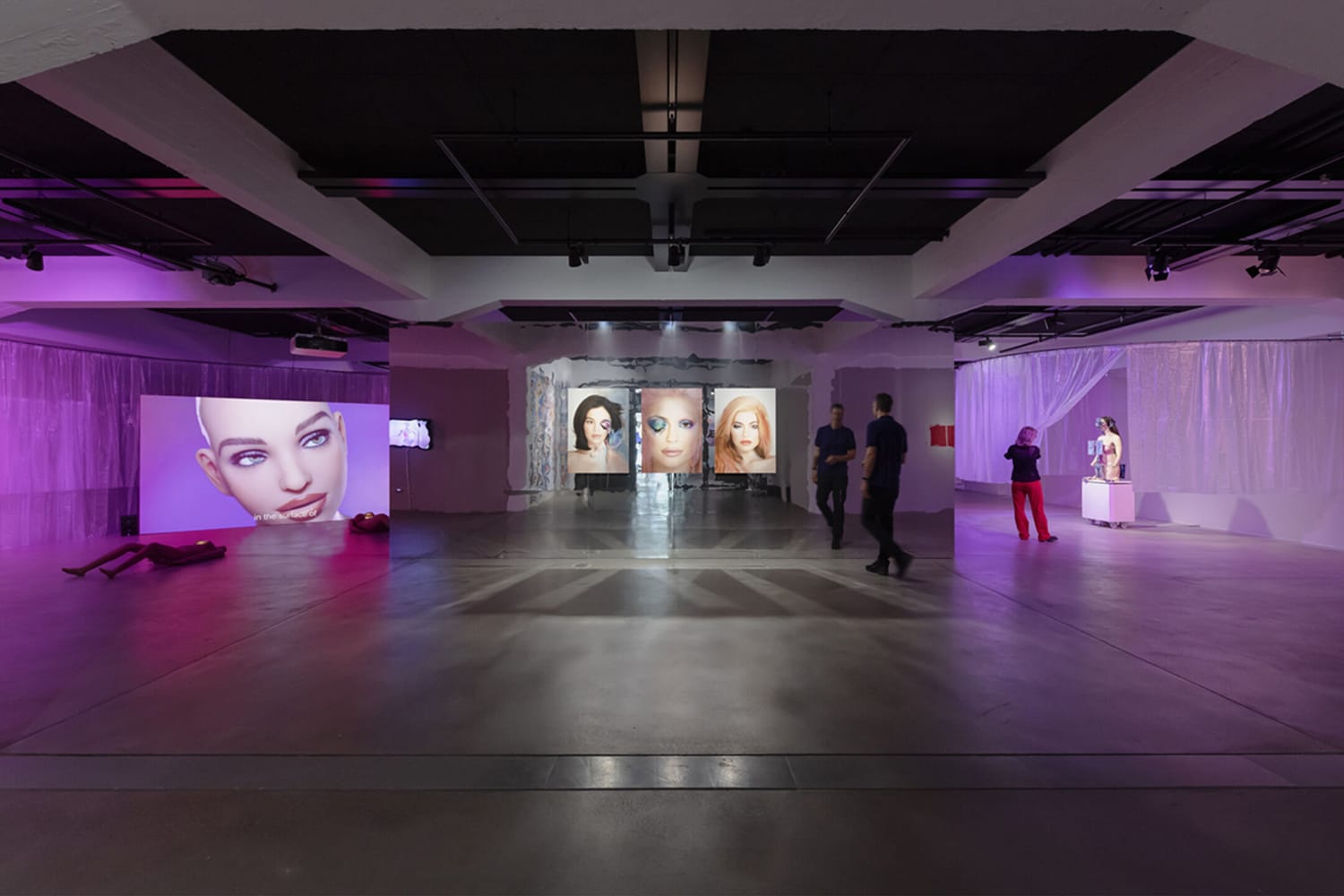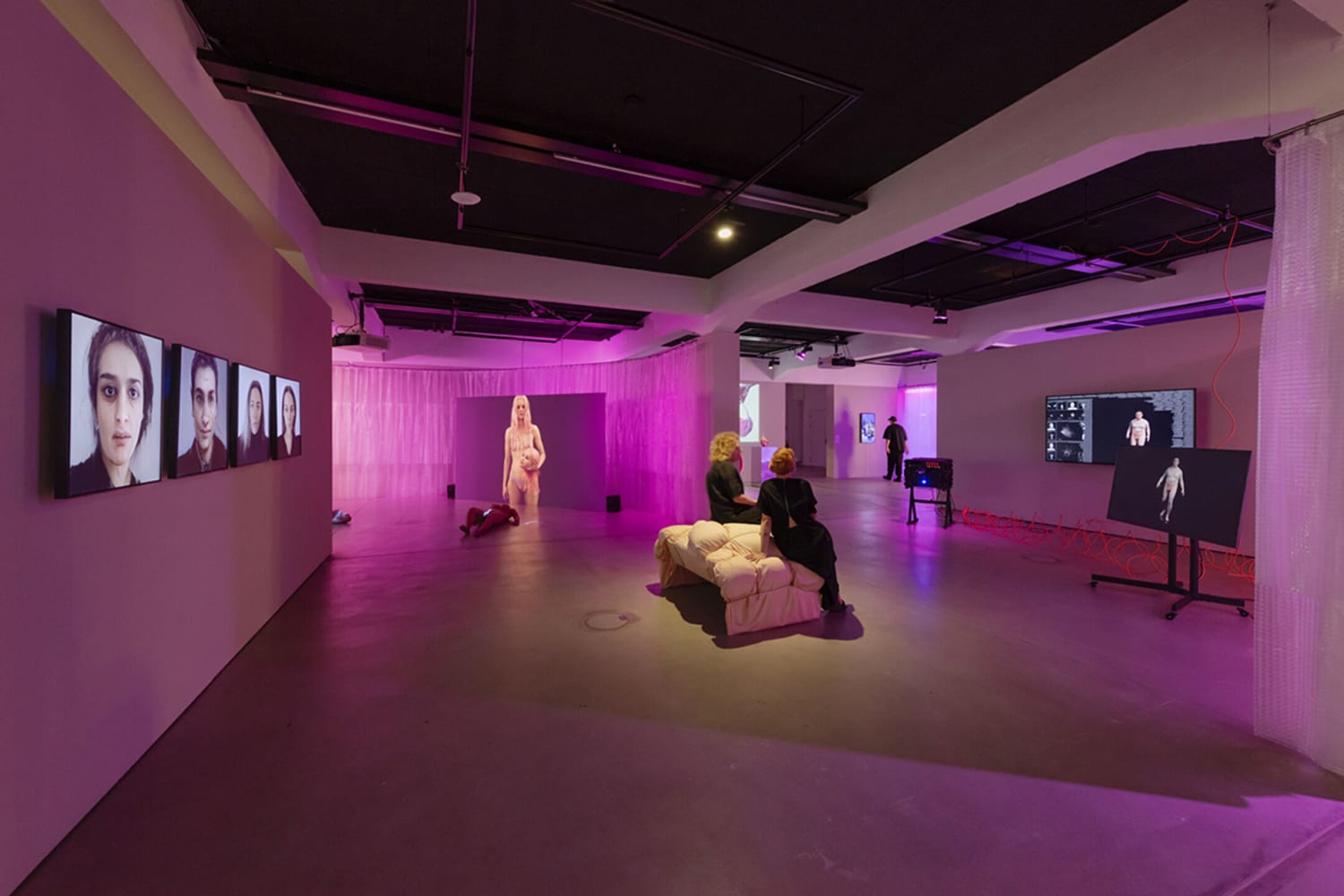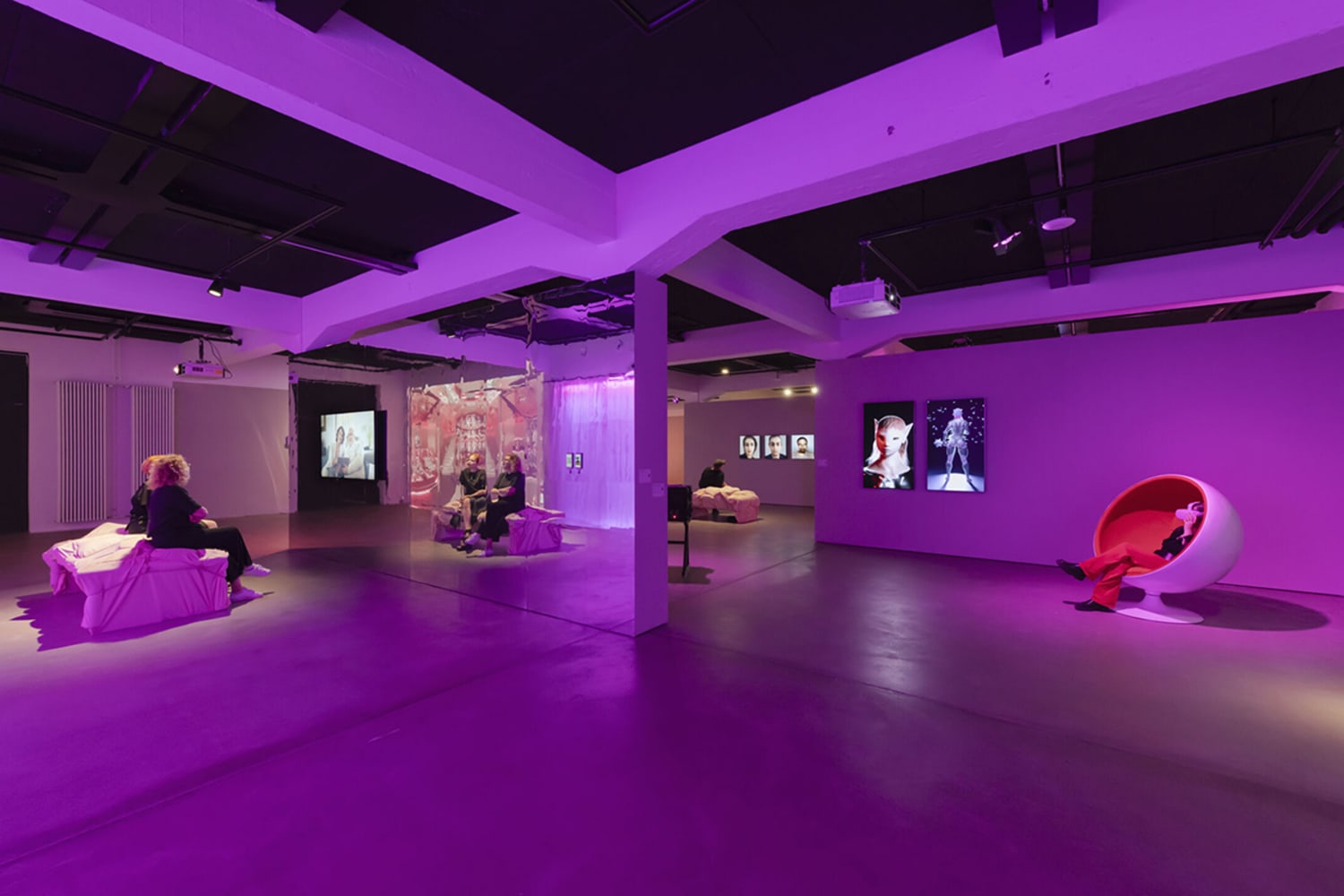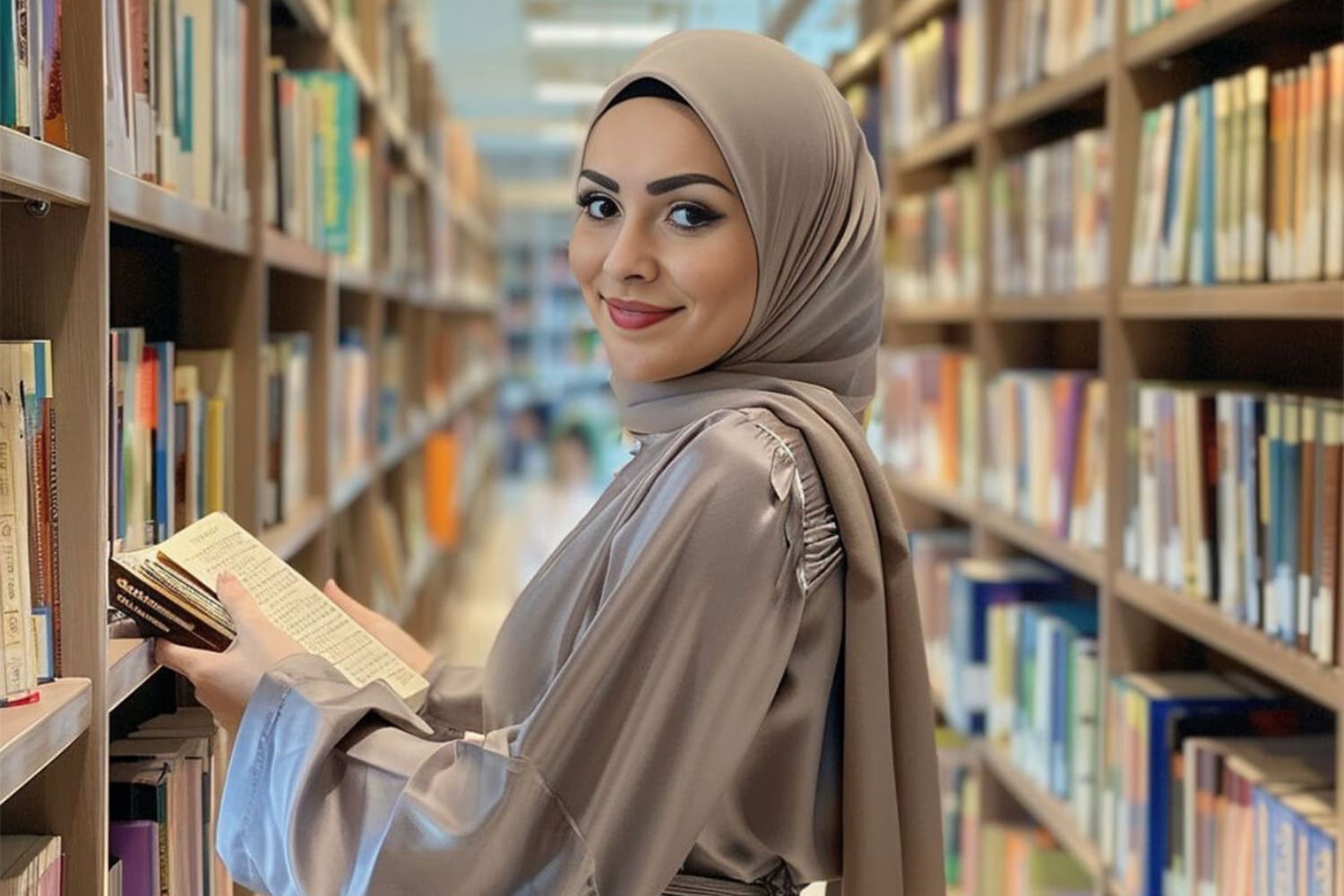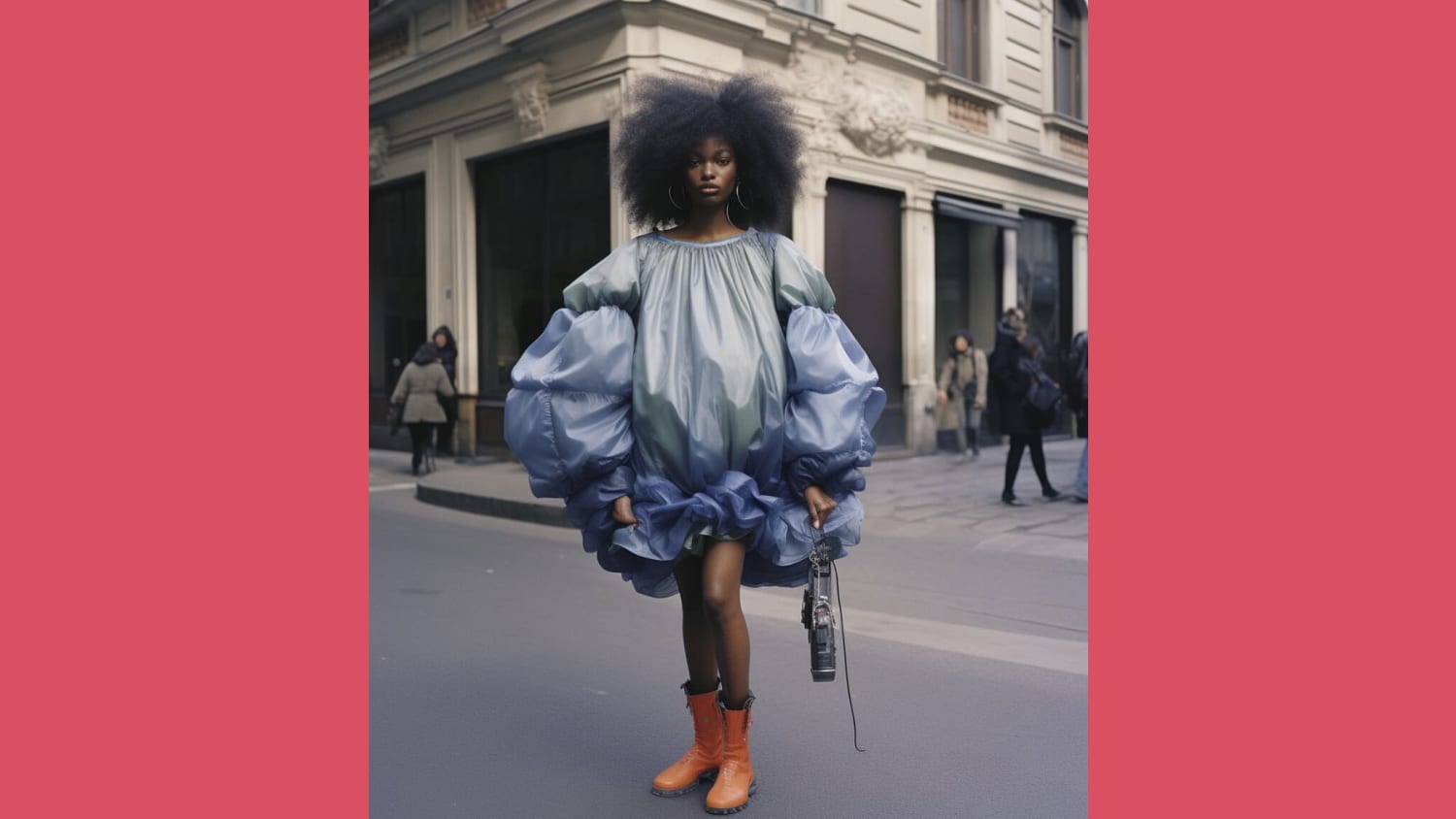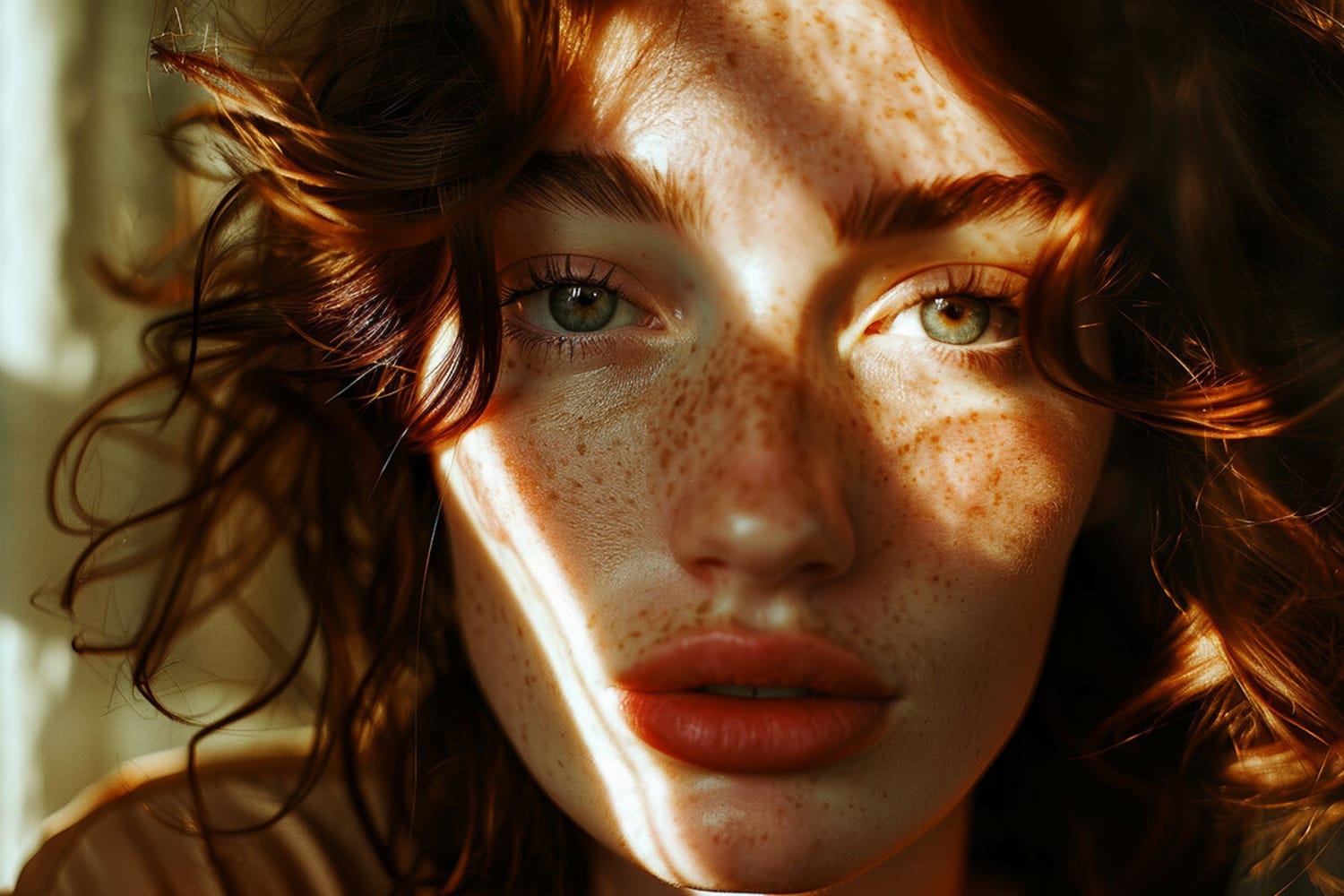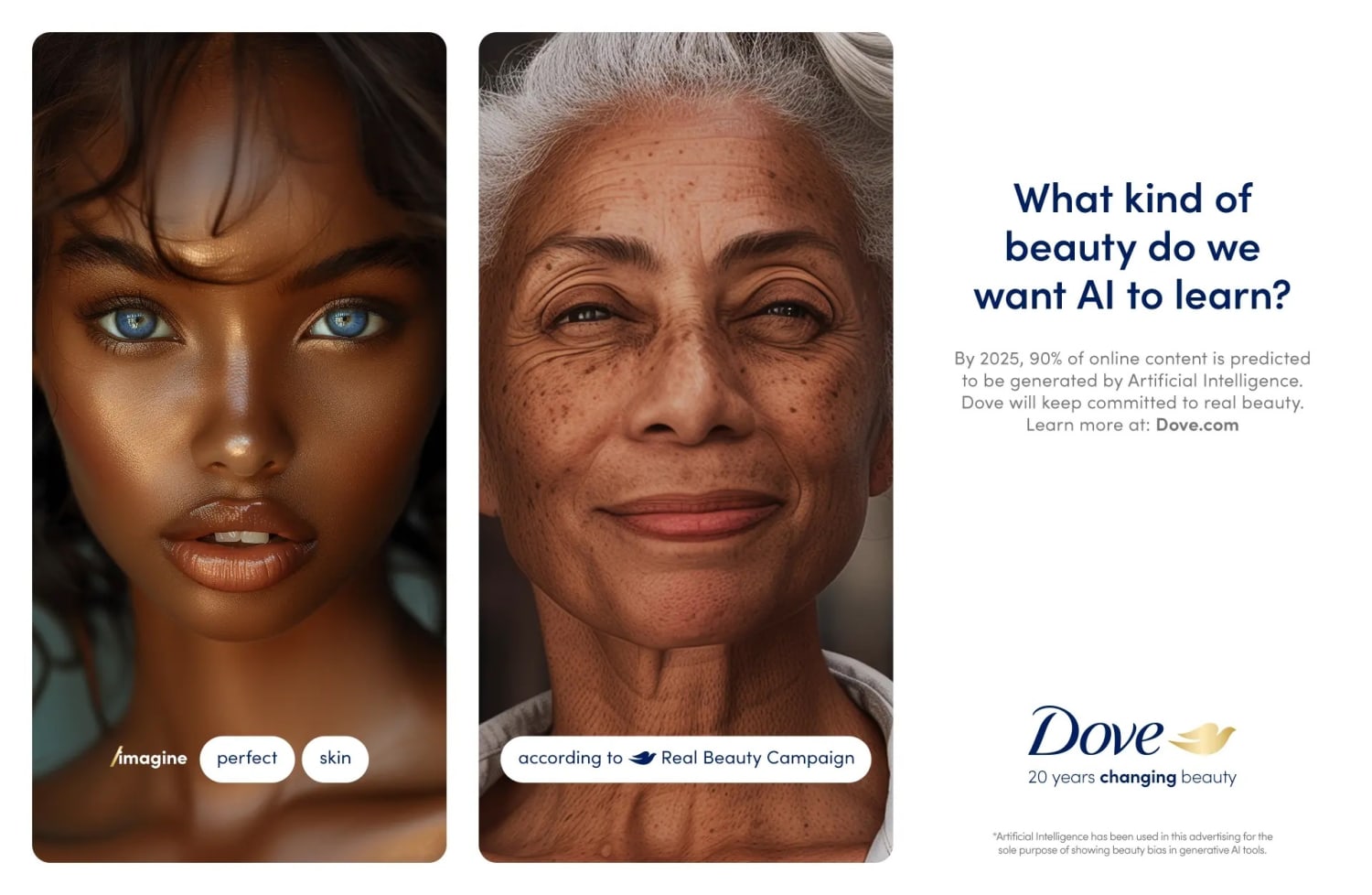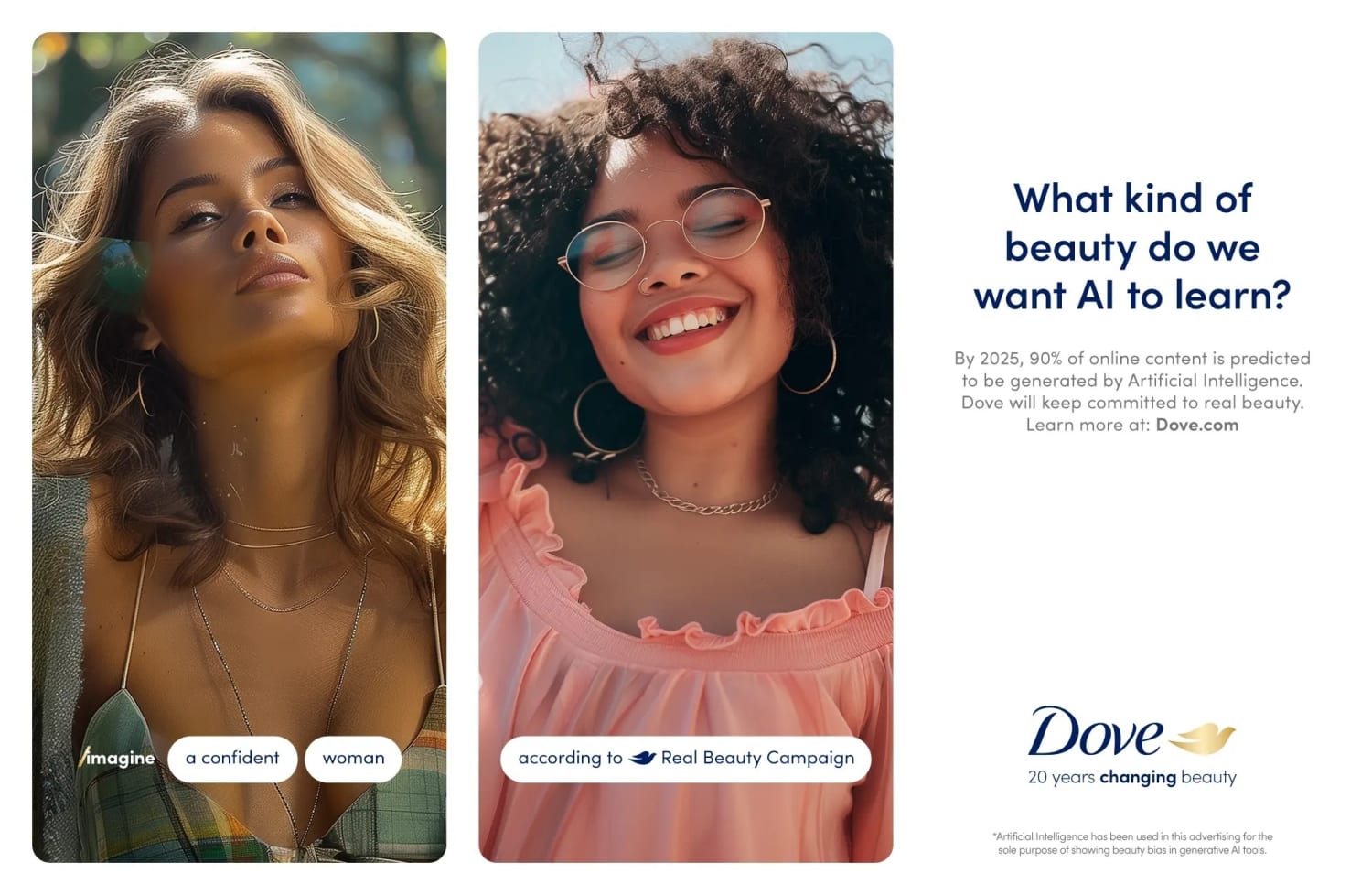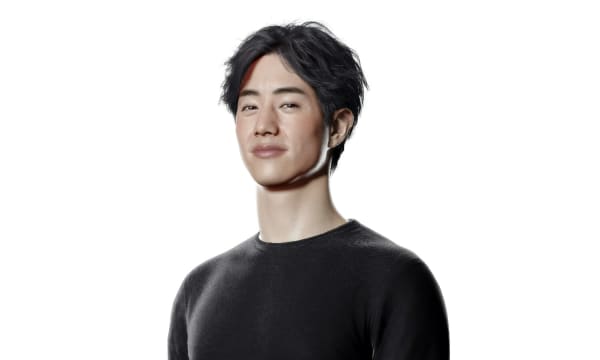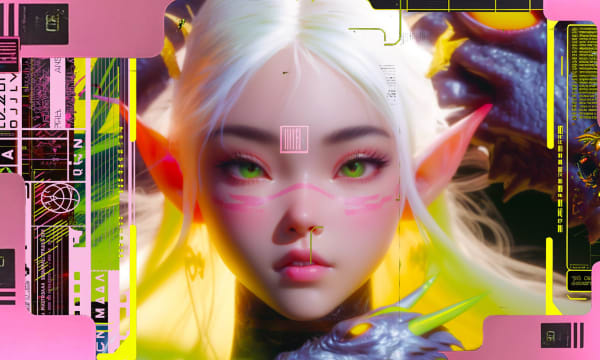After years of women and leading companies upending a traditional notion of beauty and widening the lens, artificial intelligence (AI) creators are experimenting with the possibilities of what the next iteration of beauty could look like.
Virtual Beauty, a new exhibition at the House of Electronic Arts in Basel, Switzerland, explores how technology intertwines with our identity and reshapes the definition of beauty. Artists featured include Daniel Sannwald, known for experimenting with AI to distort portraits, including 2019’s publication of an AI-generated look for Kylie Jenner on the cover of Dazed Beauty, where AI hair and makeup were applied. This fueled the early potential of AI pushing the boundaries of human aesthetics that would dazzle, confuse, and surprise. The exhibition is open from June 6 to August 18, 2024.

